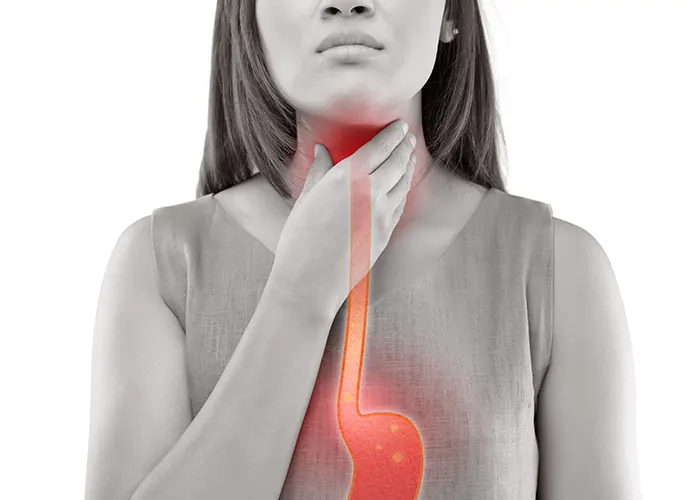The terms acid reflux, heartburn, and Gastroesophageal reflux disease (GERD) are often used interchangeably, but they actually mean different things. Acid reflux is the backflow of stomach contents into the esophagus. The feeling of acid reflux is heartburn: a mild burning sensation in the mid-chest, often occurring after meals or when lying down.
GERD is a more serious form of acid reflux. In GERD, the backflow of stomach acid occurs chronically and causes damage to the body over time. Specifically, stomach acid irritates the lining of the esophagus, which can lead to serious complications. Chronic injury and inflammation can narrow the esophagus, making it difficult to swallow. The condition can also cause pain and ulcers. Chronic GERD may even lead to asthma symptoms, a chronic cough, or dental problems as corrosive stomach acid erodes tooth enamel In rare cases, it can lead to cancer of the esophagus. GERD often stems from a weakened or relaxed sphincter in the lower part of esophagus. Like a hatch that doesn’t quite close, it allows stomach acid to backwash into the esophagus. Someone with GERD might experience heartburn or a burning sensation in the throat or a sour or bitter taste in the mouth. It might feel like food, liquid, or stomach acid coming up into the throat (regurgitation). Nausea, vomiting, and other stomach discomfort are common, as is pain or difficulty swallowing. Acid reflux and heartburn affect just about everyone, though it’s more common in people who smoke, are overweight, take certain medications, or are pregnant. Often, people are unsure if they should see their doctor. If the heartburn is frequent, severe, and doesn’t respond to over-the-counter medication, it’s time to get it checked out. The same goes for heartburn that causes pain or keeps you from doing things that you enjoy. It’s time to seek care when heartburn is accompanied by any of the following: difficulty or pain with swallowing, a persistent cough or worsening asthma, or when heartburn is accompanied by unintentional weight loss, nausea, vomiting, or bleeding. Doctors often refer patients with heartburn to a gastroenterologist, a physician who specializes in the digestive system. The gastroenterologist then inventories symptoms.










